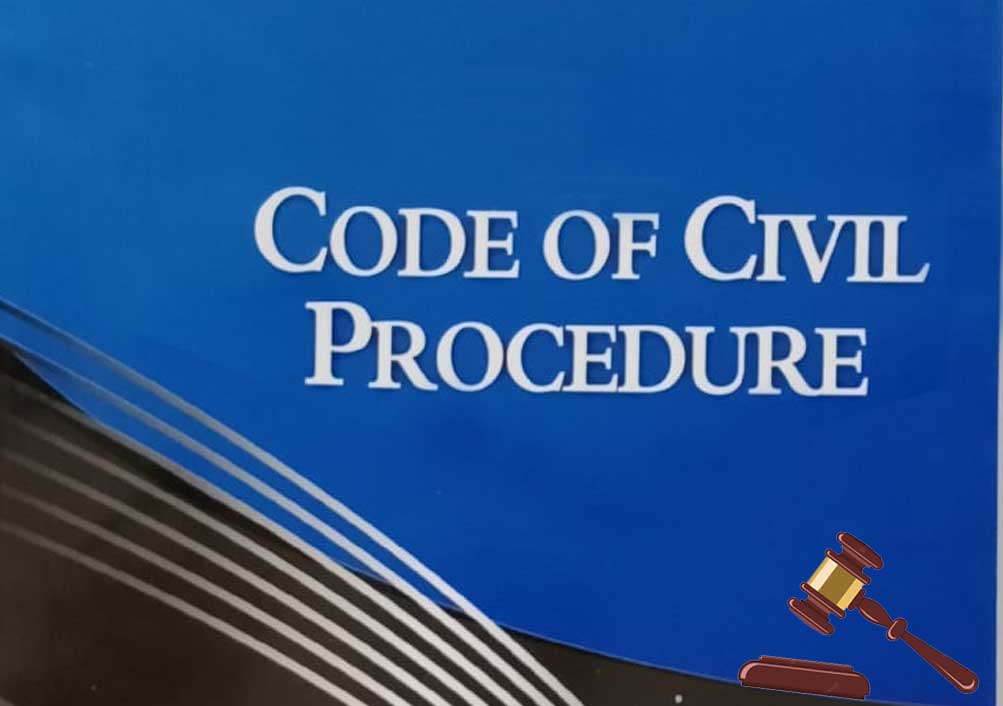In CR-1184-2023 (O&M)-PUNJ HC- Trial Courts should endeavor to finally dispose of injunction application filed under O39 Rules 1 & 2 CPC within 30 days where ex-parte injunctions have been granted in favour of plaintiffs: P&H HC
Justice Arun Monga [22-02-2023]

Read Order: Jaspal Singh and others v. M/s Omaxe Chandigarh Extension Developers Pvt. Ltd
Tulip Kanth
Chandigarh, March 9, 2023: While directing the sensitization of Presiding Officers of Trial Courts about the significance and importance of timely disposal of injunction applications in pending cases, the Punjab and Haryana High Court has held that it is the duty of every Presiding Officer to be self vigilant and mindful of the duty as envisaged under the provisions of Order 39 Rule 3A CPC.
The petitioner had approached the Bench of Justice Arun Monga seeking direction to the Court below to finally dispose of the application for ad interim injunction under Order 39 Rules 1 & 2 CPC filed by respondent/plaintiff.
The Respondent/plaintiff filed an application for ad interim injunction under Order 39 Rules 1 & 2 CPC along with a civil suit for decree of possession by way of specific performance of agreement to sell qua land of petitioner/defendants on the basis of assignment agreement executed between M/s NRI City Developers Pvt. Ltd. Chandigarh & M/s Omaxe Chandigarh Extension Developers Pvt. Ltd.
However, the petitioner/defendants were not even party to the said assignment agreement and the same was not binding on petitioners. The lower Court, after granting ex parte ad interim injunction in favour of respondent/plaintiff was adjourning the matter again and again and was not disposing of the application for ad interim injunction finally as required under Order 39 Rule 3A CPC, which was against the said provisions as well as settled law.
The Bench observed that the petitioners were aggrieved qua pendency of application filed by respondent/plaintiff under Order 39 Rules 1 & 2 CPC despite the fact that an ex parte ad interim injunction was granted in favour of respondent/plaintiff way back in 2018. After service was effected upon petitioners, they filed their written statement and the case was thus pending for consideration and disposal of pending application under Order 39 Rules 1 & 2 CPC.
The sequence of zimni proceedings before the Trial Court conveyed a telling tale of the state of affairs which were self-explanatory and reflective of the lackadaisical approach by the lower Court. Trial Court is under a legal obligation as per Rule 3A to dispose of injunction application in the prescribed time frame in those cases where ex parte indulgence had been shown, the Bench noted.
At the ex parte stage, the Court did not have the benefit of the version of the other side and there was higher probability of its being misled into passing ex parte orders. Therefore, as per the Bench, the duty had been cast by way of self-contained protection in those cases where ex parte injunctions are required to be revisited after hearing both the sides.
The High Court was of the view that due to heavy pendency of work in Courts, it may not sometimes be possible to finally dispose of the stay applications within a period of 30 days as envisaged, but at least the record should bear out and speak for itself that it was despite the endeavor of the Court that the application could not be heard or disposed of, for whatever reason it may be worth. To that extent, there was also further legal obligation on the part of the Court to record the reasons for non-disposal of the application within 30 days.
“I am conscious of the fact that there are judicial precedents to the effect that procedural provisions ordinarily are directory in nature and not mandatory but having noticed the way this case has been dealt with by Court below, there seems no justification to overlook as many as 51 adjournments granted, most of which without recording any reason by simpliciter stating ‘Adjourned for consideration’”, the Bench said.
The Bench opined that the Trial Court should make earnest endeavor to finally dispose of injunction application filed under Order 39 Rules 1 and 2 CPC within a period of 30 days in all those cases where ex parte injunctions had been granted in favour of plaintiffs.
“However, where it may not be possible to do so, duty is cast on Ld. Trial Courts to record valid reasons for not being able to do so. The said reasons are required to be recorded in writing in the proceedings while adjourning the matter”, the Bench said.
The Trial Court should dispose of pending application within a period of 4 weeks from the date of receipt of the instant order, the Bench held while directing the Registry to convey this order to the Presiding Officer of the Trial Court as well as to the District Judges of the States of Punjab, Haryana and U.T. Chandigarh for sensitizing the Presiding Officers of Trial Courts about the significance and importance of timely disposal of injunction applications in such like pending cases.
Lastly, referring to Order 43 Rule 1 CPC, the Bench held that it was thus open to petitioner to seek mitigation of his grievance by approaching the Appellate Court due to inordinate delay in disposing the application under Order 39 Rules 1 and 2 CPC owing to which the ex parte injunction continued to be in operation.
Sign up for our weekly newsletter to stay up to date on our product, events featured blog, special offer and all of the exciting things that take place here at Legitquest.




Add a Comment